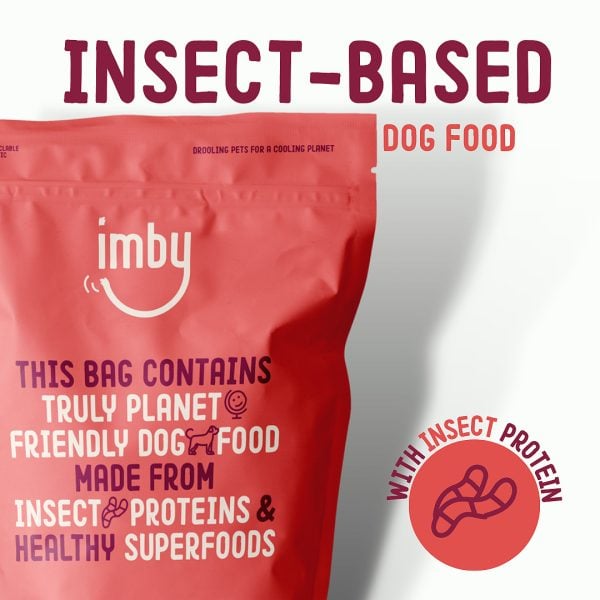
The Buzz About Bugs: How Insect Protein is Revolutionizing Sustainable Pet Food
For decades, the pet food industry has largely relied on traditional animal proteins like beef, chicken, and fish. While these sources provide essential nutrients for our furry companions, their production carries a significant environmental footprint. From land use and water consumption to greenhouse gas emissions, the conventional meat industry contributes substantially to climate change and resource depletion.
As awareness of these issues grows, pet owners are increasingly seeking more sustainable and eco-friendly options for feeding their beloved animals. Enter insect protein: a groundbreaking ingredient that’s poised to revolutionize the pet food industry and pave the way for a more sustainable future.
The Environmental Imperative: Why We Need Sustainable Pet Food
The environmental impact of pet food is often overlooked, but it’s a significant factor in the overall sustainability equation. Consider these facts:
- Meat Consumption: The pet food industry is a major consumer of meat, contributing to the demand for livestock farming.
- Land Use: Livestock farming requires vast amounts of land for grazing and feed production, leading to deforestation and habitat loss.
- Water Usage: Producing meat is water-intensive, from growing feed crops to raising animals.
- Greenhouse Gas Emissions: Livestock farming is a significant source of greenhouse gases, including methane and nitrous oxide.
- Overfishing: The use of fishmeal in pet food contributes to overfishing and the depletion of marine ecosystems.
The current model of pet food production is simply not sustainable in the long term. We need to find alternative protein sources that are both nutritious for pets and environmentally responsible.
Insect Protein: A Sustainable Solution
Insect protein offers a compelling solution to the environmental challenges posed by traditional pet food. Here’s why:
- Lower Environmental Footprint: Insects require significantly less land, water, and feed than conventional livestock.
- Reduced Greenhouse Gas Emissions: Insect farming produces far fewer greenhouse gases compared to beef, pork, or chicken production.
- Waste Reduction: Insects can be fed on organic waste streams, such as food scraps and agricultural byproducts, reducing waste and creating a circular economy.
- Efficient Feed Conversion: Insects are highly efficient at converting feed into protein, meaning they require less feed to produce the same amount of protein as livestock.
- Nutritional Value: Insect protein is a complete protein source, containing all the essential amino acids that pets need for optimal health. It’s also rich in vitamins, minerals, and healthy fats.
Insect Species for Pet Food: The Frontrunners
Several insect species are emerging as promising candidates for pet food production:
- Black Soldier Fly (BSF): The larvae of the black soldier fly are particularly well-suited for pet food due to their high protein and fat content, rapid growth rate, and ability to thrive on a variety of organic waste streams.
- Mealworms: Mealworms are another popular option, known for their nutritional value and ease of farming. They are also relatively palatable to pets.
- Crickets: Crickets are a good source of protein and fiber, and they have a relatively low environmental impact compared to traditional livestock.
Nutritional Benefits of Insect Protein for Pets
Insect protein is not only sustainable but also highly nutritious for pets. Here’s a breakdown of the key nutritional benefits:
- Complete Protein Source: Insect protein contains all the essential amino acids that dogs and cats need for muscle development, tissue repair, and overall health.
- Highly Digestible: Insect protein is easily digested by pets, ensuring that they can efficiently absorb the nutrients.
- Rich in Healthy Fats: Insects contain healthy fats, such as omega-3 and omega-6 fatty acids, which are beneficial for skin and coat health, brain function, and immune system support.
- Source of Chitin: Chitin, a component of insect exoskeletons, acts as a prebiotic fiber that promotes gut health and supports a healthy microbiome.
- Hypoallergenic Potential: Some pets with food sensitivities or allergies may tolerate insect protein better than traditional animal proteins.
Addressing Concerns and Misconceptions
Despite the numerous benefits of insect protein, some pet owners may have concerns or misconceptions about feeding insects to their animals. Here are some common questions and concerns, along with reassuring answers:
- "Is it safe?" Yes, insect protein is safe for pets when sourced from reputable suppliers and processed according to strict safety standards.
- "Is it palatable?" Many pets enjoy the taste of insect protein, especially when it’s incorporated into well-formulated pet food recipes.
- "Is it ethical?" Insect farming can be more ethical than traditional livestock farming, as insects have shorter lifespans and require less space and resources.
- "Will my pet get sick?" As with any new food, it’s important to introduce insect protein gradually to avoid digestive upset.
The Future of Sustainable Pet Food
Insect protein is just one piece of the puzzle when it comes to creating a more sustainable pet food industry. Other strategies include:
- Using Plant-Based Proteins: Incorporating plant-based proteins like peas, lentils, and chickpeas can reduce the reliance on animal-derived ingredients.
- Sourcing Sustainable Fish: Choosing fishmeal and fish oil from sustainably managed fisheries helps protect marine ecosystems.
- Reducing Packaging Waste: Opting for eco-friendly packaging materials, such as recyclable or compostable options, minimizes waste.
- Promoting Transparency: Providing clear information about the ingredients and sourcing of pet food products empowers consumers to make informed choices.
Conclusion: Embracing a Bug-Powered Future
Insect protein is a game-changer for the pet food industry, offering a sustainable and nutritious alternative to traditional animal proteins. By embracing this innovative ingredient, we can reduce the environmental impact of pet food production, promote animal welfare, and provide our furry friends with healthy and delicious meals. As awareness of the benefits of insect protein grows, it’s likely to become an increasingly common ingredient in pet food products, paving the way for a more sustainable and eco-friendly future for our pets and the planet.

